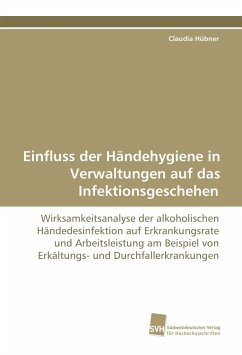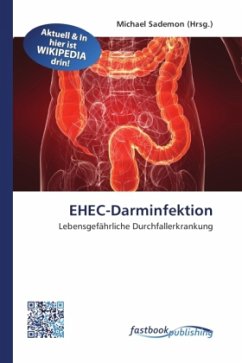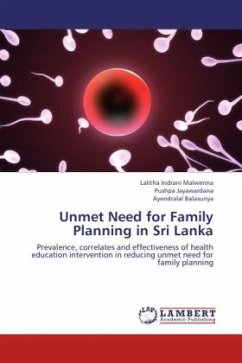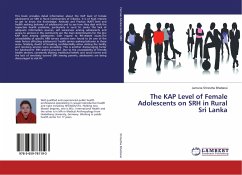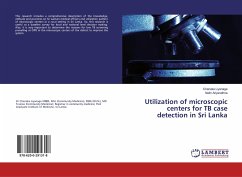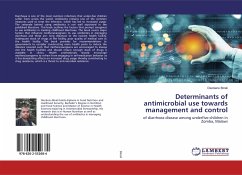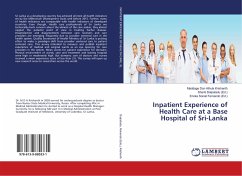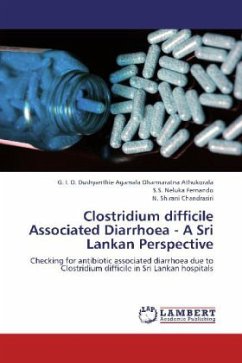
Clostridium difficile Associated Diarrhoea - A Sri Lankan Perspective
Checking for antibiotic associated diarrhoea due to Clostridium difficile in Sri Lankan hospitals
Versandkostenfrei!
Versandfertig in 6-10 Tagen
32,99 €
inkl. MwSt.

PAYBACK Punkte
16 °P sammeln!
Clostridium difficile associated diarrhea (CDAD) was increasing in most of the countries including United States, United Kingdom, India, other Western and South East Asian countries over the past two decades. No studies have been done in Sri Lanka to determine the proportions of antibiotic associated diarrhoea due to Clostridium difficile. CDAD was not routinely diagnosed in Sri Lanka. This is the first study done in Sri Lanka to determine the proportions of CDAD and it showed that hospital acquired CDAD is seen in our country even though the proportions and rates remain very low in the three ...
Clostridium difficile associated diarrhea (CDAD) was increasing in most of the countries including United States, United Kingdom, India, other Western and South East Asian countries over the past two decades. No studies have been done in Sri Lanka to determine the proportions of antibiotic associated diarrhoea due to Clostridium difficile. CDAD was not routinely diagnosed in Sri Lanka. This is the first study done in Sri Lanka to determine the proportions of CDAD and it showed that hospital acquired CDAD is seen in our country even though the proportions and rates remain very low in the three selected hospitals when compared to the other countries. Diagnosis of CDAD in our country will be very essential as the rates might go up in future with the uncontrolled use of broad spectrum antibiotics as we do not have good antibiotic policies. Further, this information will be useful to implement proper infection control measures to prevent spread among hospitalized patients which in turn will definitely reduce the health care costs. Infection control measures related to CDAD should be highlighted as the modes of transmission are not familiar to the clinicians and nursing staff currently.





